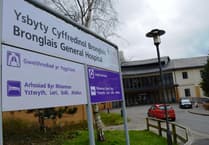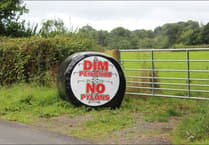On Monday, the Office for National Statistics formally reported what each and every one of us knows to be true every time we reach into our wallets or swipe our cards. Inflation is rampant, we are in a midst of a cost-of-living crisis, and the economy of the United Kingdom has recorded two consecutive quarters of negative growth. Another one once September rolls around, and we will officially be in a full-blown recession.
Whatever about macro-economic theory, on a micro level, every one of us is feeling the pinch. And in mid-Wales, where economic opportunities are few and far between; where our bus service is pitiful; our trains too few, too little and too orientated for travel to England to make a difference to the people of Wales; our roads all too quick to be eroded by seasonal storms; our infrastructure wanting — having a vehicle is a necessity.
With such a reliance on cars, with a need for the businesses to keep trucks and vans on the road in this desert of public transport, it is hard to understand why the people of this region are treated as second class.
Were this the Highlands of Scotland instead of Snowdonia or the Cambrian Mountains, we would at least be able to fill our tanks knowing that the UK government was helping, by its provision of the rural fuel relief allowance. That in itself, were we treated equally as Scots, would mean a reduction of £7.57 in the cost of filling a normal family car with diesel or petrol.
But Scotland this is not. Instead, for us living in rural Wales, there is no rural fuel relief at present.
Were VAT to be cut on fuel once more, there would be some instant relief too. That is not the case, not when almost 60p of the cost of every litre of fuel goes to UK Government coffers.
For farmers and those in the construction trade, who benefitted from being able to use ‘red’ diesel for a portion of their work, excise rules have been tightened, raising their costs needlessly.
This week, when the Abermad care home closes its doors, the elderly relatives of the infirm will travel to Carmarthenshire or beyond, to visit their loved ones. And without rural fuel relief, the cost of these visits is prohibitive.
For those relying on Universal Credit, that mean-spirited reduction of £20 last October is now so badly missed. Shame.





Comments
This article has no comments yet. Be the first to leave a comment.